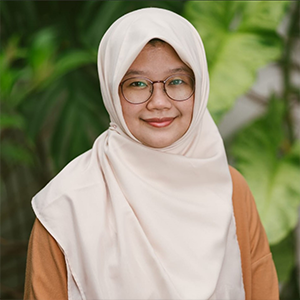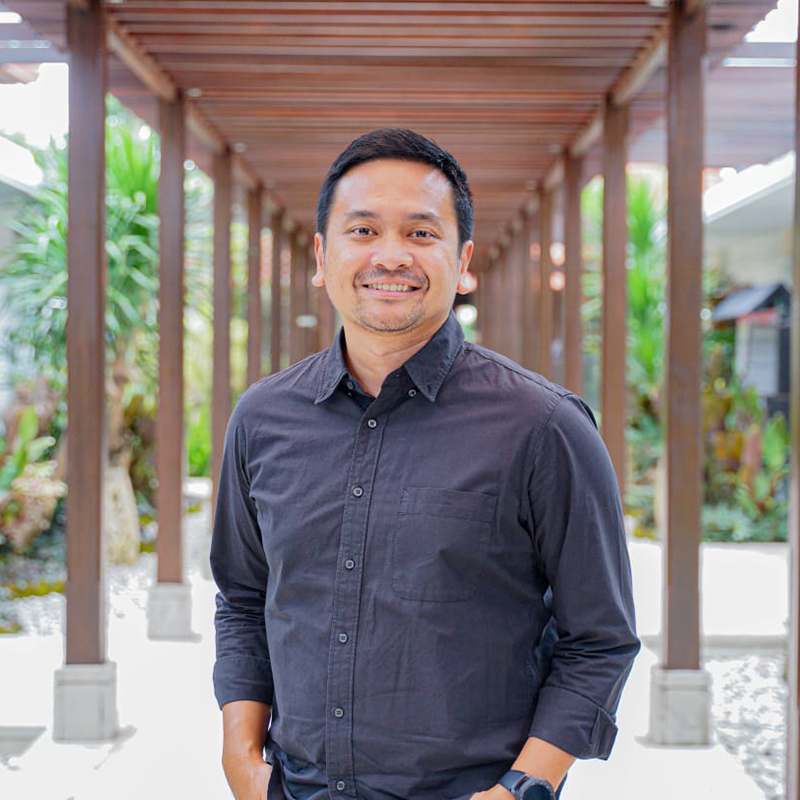At MWC Barcelona in February 2023, Indosat Ooredoo Huchison (IOH) in Indonesia entered into an agreement with the GSMA Mobile Innovation Hub (MIH), joining hands to use digital technology for mangrove conservation in the region of North Kalimantan, Indonesia. In this blog, we dive into the details of the GSMA MIH Indonesia projects and the significance of our collaboration with IOH.
The GSMA MIH Indonesia was launched in collaboration with the Deutsche Gesellschaft für Internationale Zusammenarbeit (GIZ) and works closely with the GIZ Digital Transformation Centre (DTC), supporting the Indonesian government and local stakeholders to work towards climate and digital twin transition.
MIH projects are structured around three focus areas: renewable energy, waste data management, and natural resource management (NRM). A landscaping study that assess the current role digital technology plays in the Indonesian climate landscape served as the basis for these projects.
Getting to know the North Kalimantan region
By 2015, the area of North Kalimantan had lost 215,592 acres (or 47%) of its mangrove forest. Up until the 1980s, this province’s entire coast was covered in dense mangrove forests. In several parts of North Kalimantan, mangrove degradation and deforestation continues to be widespread, and the situation is further exacerbated by a lack of land use regulations, low compliance with existing laws, and poor law enforcement. Without concerted action, massive mangrove deforestation will erode carbon sinks, increase the likelihood of disasters brought on by climate change, and endanger community well-being.
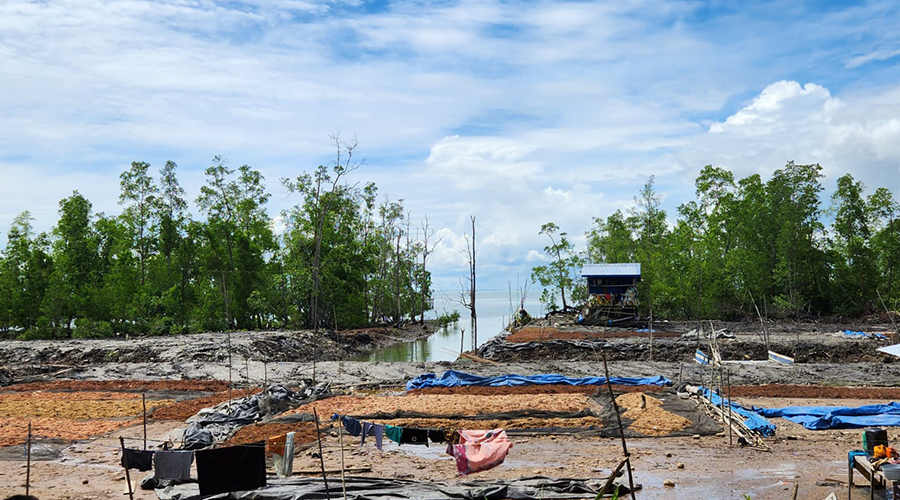
Although the Indonesian government has identified North Kalimantan as a priority region for mangrove conservation, deforestation is still continuing. In 2022, an unlawful land conversion resulted in the loss of 80 hectares of mangrove forest in Nunukan, a municipality in North Kalimantan. Massive deforestation has also occurred in North Kalimantan villages like Setabu and Bebatu as a result of the conversion of land for seaweed and shrimp farms. With the expansion of the seagrass and shrimp farming industries, the impact on the mangrove ecosystem has increased significantly over time.
Our projects in North Kalimantan
To tackle the aforementioned challenges, the GSMA MIH is working with GIZ, IOH and the local government to support mangrove restoration projects in Setabu and Bebatu villages, focusing on two projects in this region: a participatory marine and coastal mapping and the piloting of eco-friendly shrimp farming using digital technology.
Why participatory mapping?
Many village governments have limited capacity to develop village spatial planning documents. The primary objective of the project is to map the geographic features of the sea and coastal areas of the Setabu village and its affected areas due to sea grass farming. The information obtained from this map will enable village governments to prepare village spatial planning documents, which are essential for the preparation of the Village Medium-Term Development Plan and the Village Government Work Plan. Additionally, the village spatial planning document can also be used as a reference for taking action to minimise environmental damage caused by irresponsible and undirected economic development. More importantly, the local people will be involved in the development of this map, raising their level of digital and climate awareness.
How can digital technology make shrimp farms eco-friendly?
In North Kalimantan’s Bebatu village, unsustainable shrimp farming practises have resulted in a sharp decline in the number of mangrove trees. As a result of their perception that mangroves reduce productivity, shrimp farmers often destroy significant areas of mangroves. Moreover, to only use a fraction of the mangrove forest for shrimp farming, the farmers usually destroy massive chunks of it, typically 4 to 10 hectares.
To address this issue, the MIH Indonesia is partnering with GIZ to launch a digital and eco-friendly shrimp farming pilot project to boost farm productivity and safeguard the mangroves.
Leveraging a mobile Internet of Things (IoT) solution designed and developed by IOH, this project will boost shrimp farmers’ output and efficiency by monitoring their ponds. The solutions will use sensors to monitor water quality such as temperature, salinity, water level, nitrite level, dissolved oxygen, and acidity. These sensors will gather data and transmit it to the cloud, where it is compiled, saved, and analysed. Twice daily, the farmers will receive notifications on their phones with real-time water quality data for their ponds.
The IoT solution will help the farmers take actions based on the current water quality status, such as replacing the water in the ponds with fresh water by tidal flow or pumping, adding lime or dolomite to neutralise acidity, or feeding the shrimps, as water quality is crucial to the shrimp farming process.
The importance of partnership with IOH
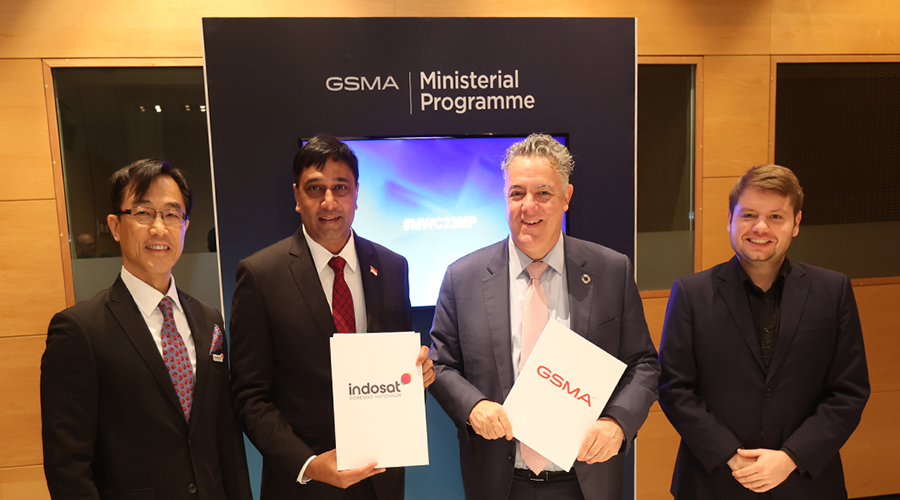
This partnership with IOH is a remarkable illustration of how the mobile sector can, in the absence of an infrastructure or an internet network, play a critical role in enabling vulnerable communities to access digital solutions that help them become more resilient to climate change. For instance, many coastal communities around the world recognise the necessity for mangrove forest conservation. Such pilot projects will yield invaluable learnings that can be applied to other regions, countries, and contexts. We acknowledge the outstanding role IOH is playing in addressing climate change, one of the most urgent problems the world is currently facing.
The Mobile Innovation Hub is funded by the German Federal Ministry for Economic Cooperation and Development (BMZ), and supported by the GSMA and its members.
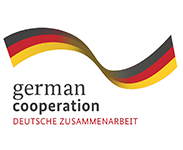
If you have any interest in partnering with us and/or further questions, please email [email protected]!


